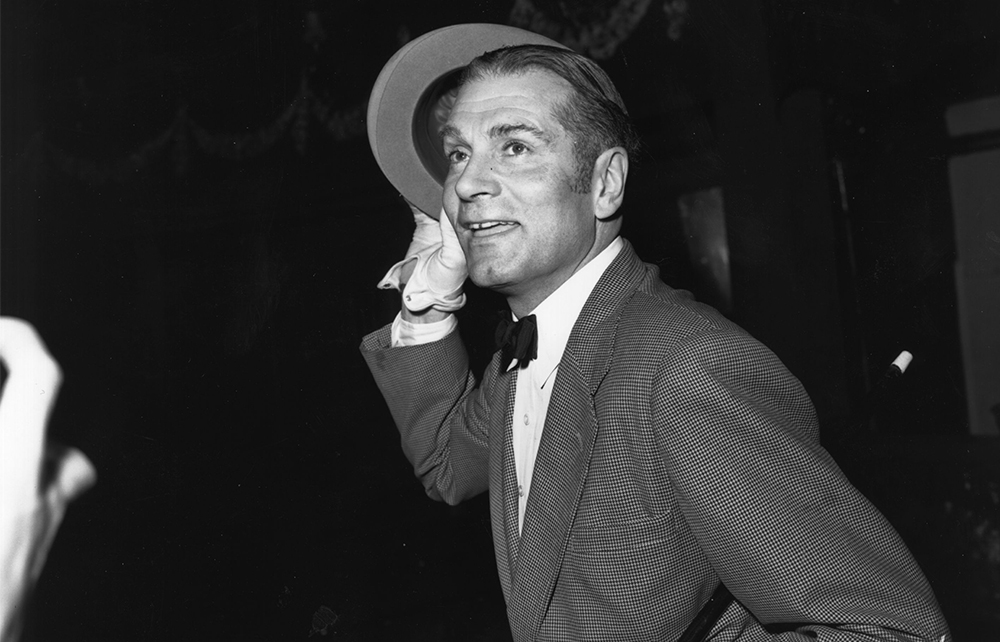Breakfast is my preferred meal, in case you’re interested. I broke my fast this week with my walking laser-light of a friend, William Shawcross, at Fischer’s in Marylebone, which serves an egg rosti to rival that of Café Sacher in Vienna. Fischer’s consists of a small entrance area, a bar to the left, and at the rear a faux Austrian dining room with wall-to-wall antlers (synthetic, but that’s how the strudel crumbles these days). The main room forms a St Helena to which second class patrons are exiled. Preferred clients, selected with unerring snobisme, are placed at the front.
Novelising to Mantel was as solemn a business as trimming a beard is to a German barber
We, of course, were allotted an impeccable position by the window. The Tudors used to breakfast on cheese and small ale, which brought us to the new series of Wolf Hall, which is to air on the BBC. This bears upon me harshly. The television adaptation of Hilary Mantel’s novels was like a religion with no dilution of agnosticism, as were the books, which were vastly overrated. Mantel wrote like a Teuton. Indeed, novelising to her was as solemn a business as trimming a beard is to a German barber. She blasted her way through her interminable works. Her writing, one feels, often took on the character of a siege operation, with tunnelling, drum fire, assaults in close order and hand-to-hand fighting. She was the Hindenburg of the historical novel and the adaptation was worse.
Mark Rylance, who will reprise his role as Thomas Cromwell, had the permanent and tedious aspect of a minor clerk trying to bring a village under the yoke and taking a laborious inventory of the inhabitants. His acting is the very negation of lightness, intuition and impressionism and I could never fathom why he became a word-of-mouth myth. Moreover, the series will subject us to more preposterous BBC fake history. Thomas Wyatt, the first person to write sonnets in English, is played by Amir El-Masry, who is Egyptian-British. Wyatt is an ancestor of mine and he had never been east of Calais. I am thinking of complaining, as diverse casting has become inequitable and unfair in an age when Laurence Olivier would no longer be allowed to play Othello. Olivier, whom I met when I was 15 or so at a Negroni-soaked lunch in an Italian villa, would have hated the discrimination against white actors.
Olivier was about as apologetic as a Watusi chieftain embarking on a war dance
It is safe to assume that the artist is generally against his country. In the acting profession it is almost impossible to find any trace of a patriot. The same can be said of history’s most creative minds. Dante put patriotic Italians in Hell; Goethe was in favour of Napoleon; Swift finished the Irish and then the English. Today, recreants like Michael Sheen return their honours. Olivier was perhaps the last great British actor who revered the nation of his birth. He worried that England was going to the dogs. Over linguine with pesto fragrant with pinoli, he lamented in his cello bass voice that actors no longer cared if they spoke in accents comprehensible to audiences. Mumbling was taking the place of clarity in Shakespeare, he said, as the performers wished to depart from their Britishness.
How he would deplore our decline today. A mutual friend tells me that top Labour MPs are favourably disposed to removing ‘Rule Britannia’ from The Last Night of the Proms.
When it came to ancestral traditions, Olivier was about as apologetic as a Watusi chieftain embarking on a war dance. The modern world was a new dance and he didn’t know the steps. After the gelato, he planted a smacker on the nether regions of my face, which would probably put him in the slammer today, though there was little that was threatening or predatory about it. I cannot help thinking that life in those non-woke days had more flavour.







Comments